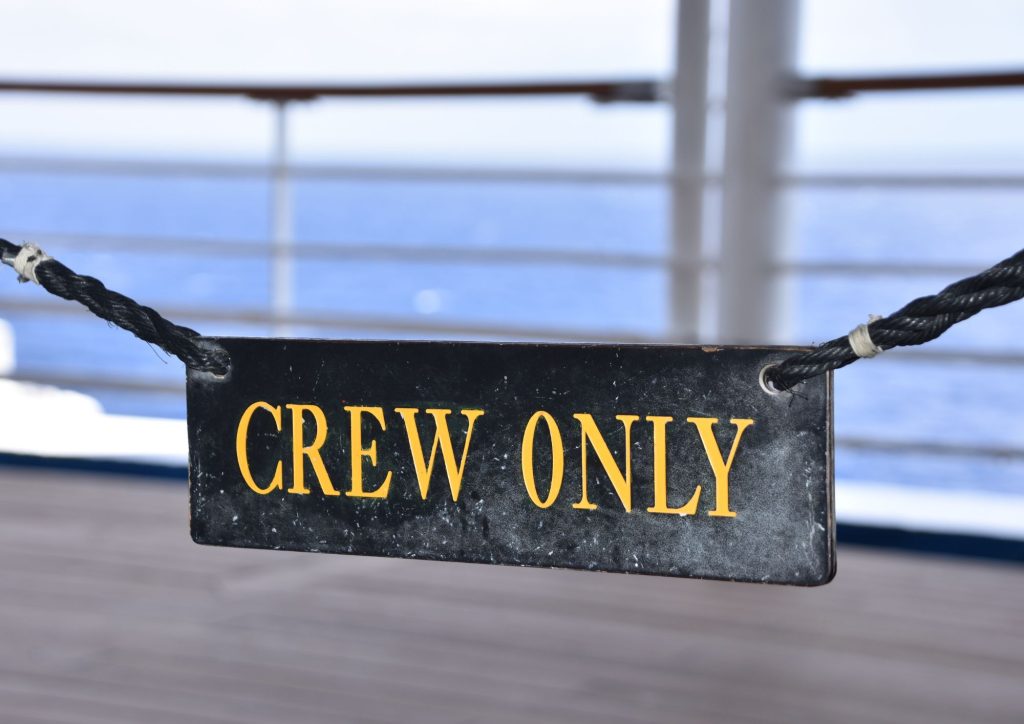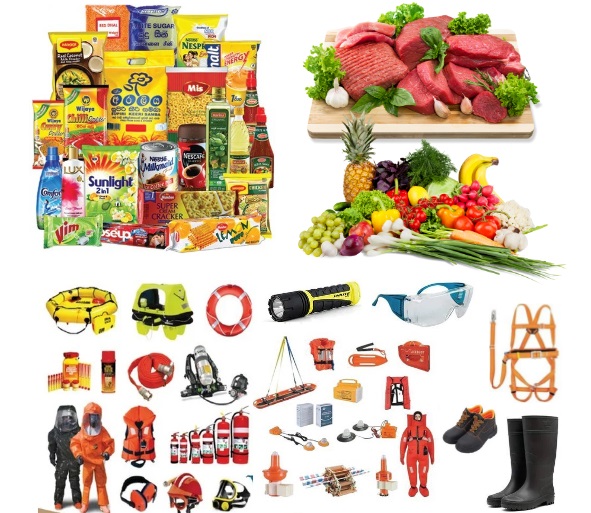
Food Provision – Food provision tools are essential for the efficient storage, preparation, and serving of meals on ships, contributing to the overall well-being and morale of the crew during long voyages. These tools encompass a wide range of items, including storage containers, refrigeration units, cooking utensils, and serving equipment. Proper storage containers are crucial for preserving the freshness and safety of perishable items, while refrigeration units are vital for maintaining the quality of food supplies in the often humid and warm maritime environment. Cooking utensils, such as pots, pans, knives, and cutting boards, are necessary for preparing a variety of meals that cater to the crew’s nutritional needs. Given the limited space and resources available on ships, food provision tools must be both functional and space-efficient, allowing the galley staff to maximize their productivity while maintaining high standards of hygiene and food safety. Serving equipment, such as dishes, trays, and utensils, ensures that meals are presented well and served efficiently, contributing to a positive dining experience. Overall, food provision tools are integral to the smooth operation of a ship’s galley, ensuring that crew members receive nutritious and enjoyable meals that sustain their health and morale during extended periods at sea.
Bonded Store – A bonded store on ships is a designated area for the storage of goods and materials that are subject to customs regulations, particularly for items that have not yet been cleared by customs authorities. This facility plays a crucial role in maritime operations, as it allows for the safe storage of a wide range of products, including food, beverages, tobacco, and other duty-free items intended for consumption by the crew and passengers during the voyage. The bonded store is typically managed under strict guidelines to ensure compliance with international customs laws, allowing for the controlled access and monitoring of goods. One of the key benefits of a bonded store is that it allows ships to stockpile essential supplies without incurring customs duties until the goods are unloaded in a port. This is particularly advantageous for vessels operating on international routes, as it can lead to cost savings and efficient inventory management. The bonded store also helps in maintaining hygiene and safety standards by providing a dedicated space for storing perishable items, reducing the risk of spoilage. Overall, bonded stores are integral to ensuring that ships can effectively manage their supplies while adhering to legal requirements, contributing to smooth operations and enhanced crew welfare during voyages.
Safety Protective – Safety protective equipment is crucial in ensuring the health and safety of crew members aboard ships, where the marine environment poses various risks. This equipment includes personal protective gear such as helmets, life jackets, safety goggles, gloves, and coveralls, designed to protect against potential hazards encountered during daily operations. Life jackets and personal flotation devices are essential for ensuring crew safety in case of overboard incidents or emergencies, while helmets protect against falling objects on deck or during maintenance activities. Safety goggles and face shields are vital for protecting the eyes and face from flying debris, chemical splashes, or intense light during welding operations. Additionally, safety footwear, designed with slip-resistant soles and steel toes, provides protection against heavy loads and reduces the risk of slips and falls. Firefighting gear, including flame-retardant suits and breathing apparatus, is critical for dealing with onboard fire emergencies. Safety harnesses and lanyards are used when working at heights, preventing falls during maintenance on masts or rigging. Regular training on the proper use of safety protective equipment is essential to ensure crew members are prepared for emergencies and understand how to use their gear effectively. Overall, safety protective equipment is fundamental to promoting a culture of safety aboard ships, minimizing accidents, and safeguarding the lives of those on board.
Gear & Equipment – Gear and equipment are integral to the safe and efficient operation of ships, serving various critical functions that enhance navigational capabilities, cargo handling, and overall performance. This category encompasses a wide range of items, including winches, cranes, pulleys, steering systems, and anchors, each designed to perform specific tasks essential for maritime operations. For example, winches and cranes are vital for loading and unloading cargo, enabling ships to efficiently handle containers, bulk materials, and heavy equipment. Their strength and reliability are crucial in preventing accidents and ensuring the safety of crew and cargo during these operations. Furthermore, the steering gear is essential for maneuvering the ship, allowing for precise control in navigation, especially in crowded ports or narrow channels. Anchors play a key role in securing the vessel when at rest, preventing drift due to tides or currents. Other equipment, such as navigational aids and communication systems, enhance safety and operational effectiveness, enabling ships to navigate accurately and maintain contact with shore facilities. Regular maintenance and inspection of gear and equipment are vital to ensure reliability and compliance with maritime regulations. In summary, gear and equipment are indispensable for the functionality, safety, and efficiency of ships, facilitating a wide range of critical maritime activities.
